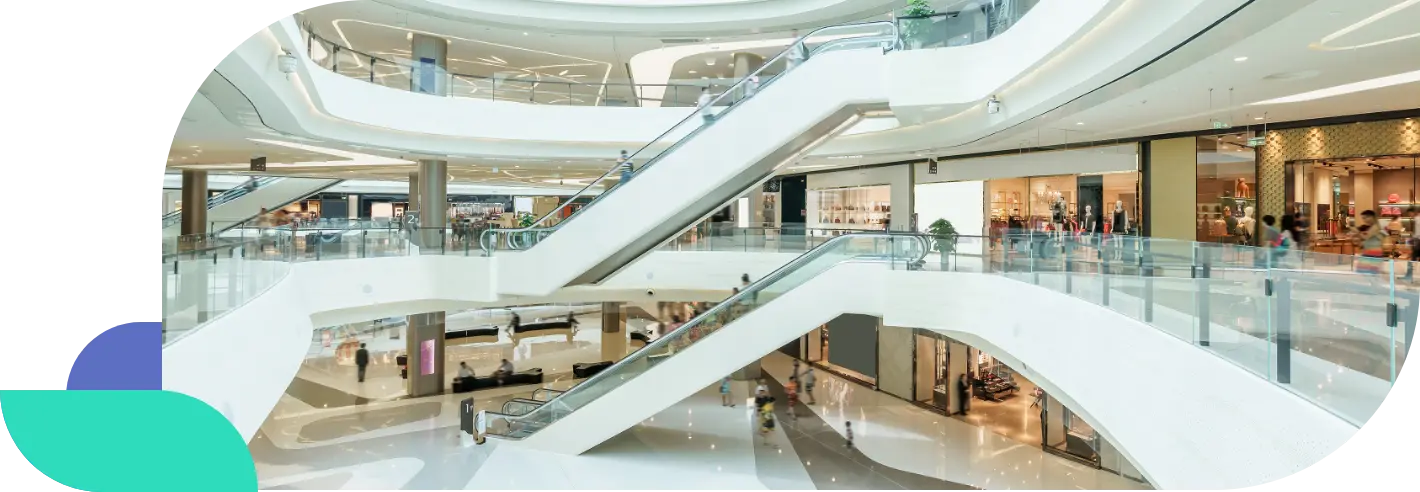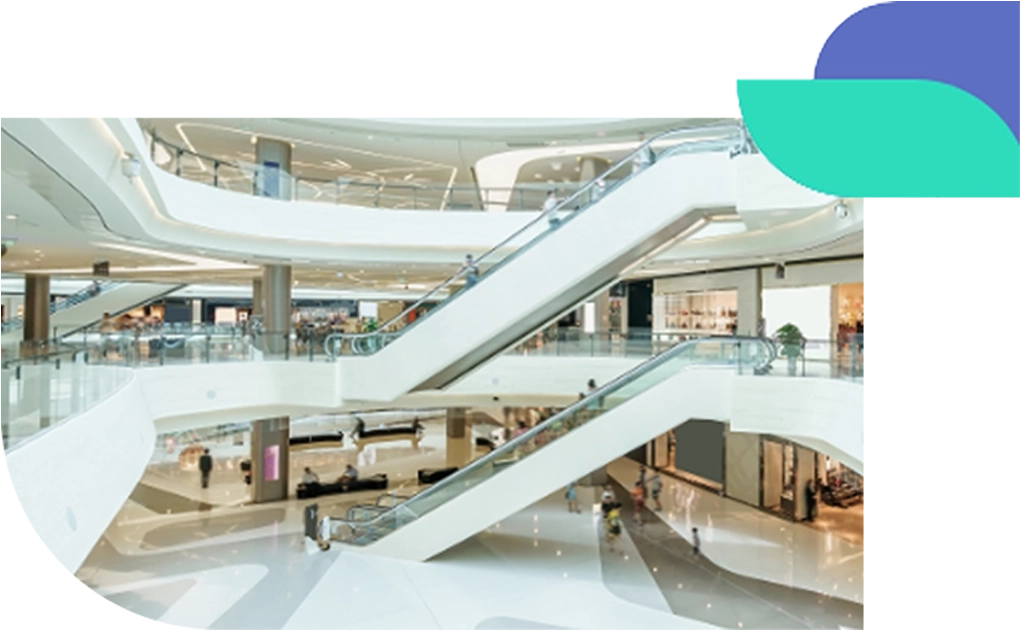How retail malls can bag the benefits of sustainable energy
Retail malls in Singapore, particularly those connected to MRT hubs and interchanges such as Jurong Point, NEX, and Plaza Singapura, play a vital role in the urban landscape. With their accessibility and high pedestrian traffic, these malls offer convenience and comfort but also present significant energy management challenges. The fluctuating demand for cooling and lighting, especially during hot weather and holiday shopping seasons, calls for smarter energy solutions.
Varied operating hours and energy challenges
Retail malls connected to MRT interchanges must accommodate tenants with varied operating hours, such as 24-hour convenience stores, supermarkets and eateries. These tenants often remain open long after regular mall operations, requiring lighting, air-conditioning, and safety systems to stay active in certain zones.
Seasonal and weather-driven traffic spikes
Singapore’s tropical climate often drives increased foot traffic to malls during hot weather as people seek refuge in air-conditioned environments. Similarly, holiday seasons and tourist influxes result in heightened energy usage, particularly Air-Conditioning and Mechanical Ventilation (ACMV) systems.
Balancing operational costs and sustainability
Retail operators face the dual challenge of maintaining optimal comfort for visitors while managing operational costs and meeting sustainability goals such as achieving Super Low Energy Building (SLEB) standards.

SP’s Green Energy Tech (GET®) offers an all-in-one energy management system that integrates AI, IoT, and advanced analytics to address the unique challenges of retail malls. Here are some of the ways cutting-edge solutions can transform energy management:
GET® Insights provides real-time energy usage monitoring and analytics through a comprehensive utilities dashboard. By offering granular visibility into electricity consumption, this system empowers retail mall operators to:

Identify inefficiencies
Pinpoint high-energy usage areas like food courts or cinemas and implement targeted measures to optimise consumption.

Monitor trends
Track energy patterns during peak hours, weekends, and seasonal surges to make proactive adjustments.

Plan with precision
Data and AI support timely rectification and minimise cost implications. With data-backed insights, retail mall operators can implement precise energy-saving strategies while maintaining operational efficiency.
When it comes to tenants, the role of automated energy data collation is paramount. This is how energy data can bridge the gap between landlords and tenants to improve sustainability efforts:
Promoting accountability
Detailed energy consumption breakdowns encourage tenants to adopt energy-efficient practices and understand their impact on overall operations.
Customised recommendations
Tailored suggestions help tenants reduce their carbon footprint without compromising business performance.
Automated meter reading process
Smart meters ensure accurate and transparent billing based on actual energy consumption. This eliminates human error and re-reading of meters.

Collaborative culture
Transparent energy data enables landlords and tenants to identify inefficiencies and work together on sustainability initiatives. By combining insightful data and collaboration, landlords create a win-win ecosystem for tenants and the environment.
Improved operational efficiency
Digitalised processes and real-time data simplify management, reducing administrative workload for mall operators.
GET® Control is a self-learning building intelligence system that integrates AI (Artificial Intelligence) and IoT (Internet of Things) to automate and optimise key building systems like lighting, air-conditioning, and microclimate control. Some key features:

Dynamic adjustments
Proactively regulate indoor airflow control and cooling based on real-time foot traffic and weather conditions. This is particularly important in mixed-use complexes with varying patterns of consumption e.g. offices that operate during business hours and 24-hour retail outlets.

Predictive maintenance
Leverage cloud-based AI for autonomous control capabilities by continuously commissioning and learning from the smart building’s energy usage patterns.

Improved operational efficiency
Remotely manage at a micro-zone level through any device to eliminate the costs of housing data servers and a dedicated response terminal.
GET® Control ensures that energy is used only where and when it’s needed, reducing waste and improving the overall occupant and visitor experience.

In addition to energy management, retail malls can enhance sustainability by integrating EV Charging Management Systems and adopting renewable energy sources. These measures align with the Singapore Green Plan 2030 while serving the needs of eco-conscious shoppers and tenants.
SP is advancing renewable energy adoption in retail malls with its solar photovoltaic (PV) solutions. SP is supporting Frasers Property in a group-wide environmental, social, and governance (ESG) target of installing 215 megawatts of renewable energy capacity by 2030.
SP’s solarisation efforts for Frasers Property include:
-
Deployment across seven properties
Solar panels will be installed at Alexandra Technopark, Causeway Point, Century Square, Hougang Mall, Northpoint City (North Wing), Tampines 1 and White Sands, making this the largest single solarisation rollout for retail malls in Singapore.
-
Extensive solar PV installation
Covering nearly 4,500 square metres, the solar PVs are designed to harness clean, renewable energy.
-
Significant energy generation
Projected to generate 920,000 kilowatt-hour (kWh) annually, this is equivalent to powering 450 four-room Housing Development Board flats.
-
Carbon emissions reduction
The initiative will reduce carbon emissions by over 370 tonnes a year while achieving cost savings of approximately S$220,000 a year. This collaboration exemplifies SP’s commitment to supporting large-scale sustainability goals while helping retail malls transition towards greener energy solutions.

Cost savings
Optimised energy usage directly translates to reduced utility bills and improved profitability.

Data-driven agility
Advanced energy usage monitoring enables operators to make informed decisions and adapt to evolving needs with precision.

Environmental impact
Achieving sustainability goals through efficient resource management contributes to the nationwide effort to address climate change.

Improved tenant engagement
Optimised energy consumption allows tenants to focus on their core business without allocating resources towards energy management.

Enhanced visitor experience
Smart energy management ensures a comfortable and welcoming environment for shoppers, regardless of traffic fluctuations.
As Singapore continues to innovate and lead in sustainability, retail mall operators can seize the opportunity to implement sustainable energy solutions to achieve smarter, greener and more efficient operations.

Partner with SP for an all-in-one energy management system for your mall and tenants.

